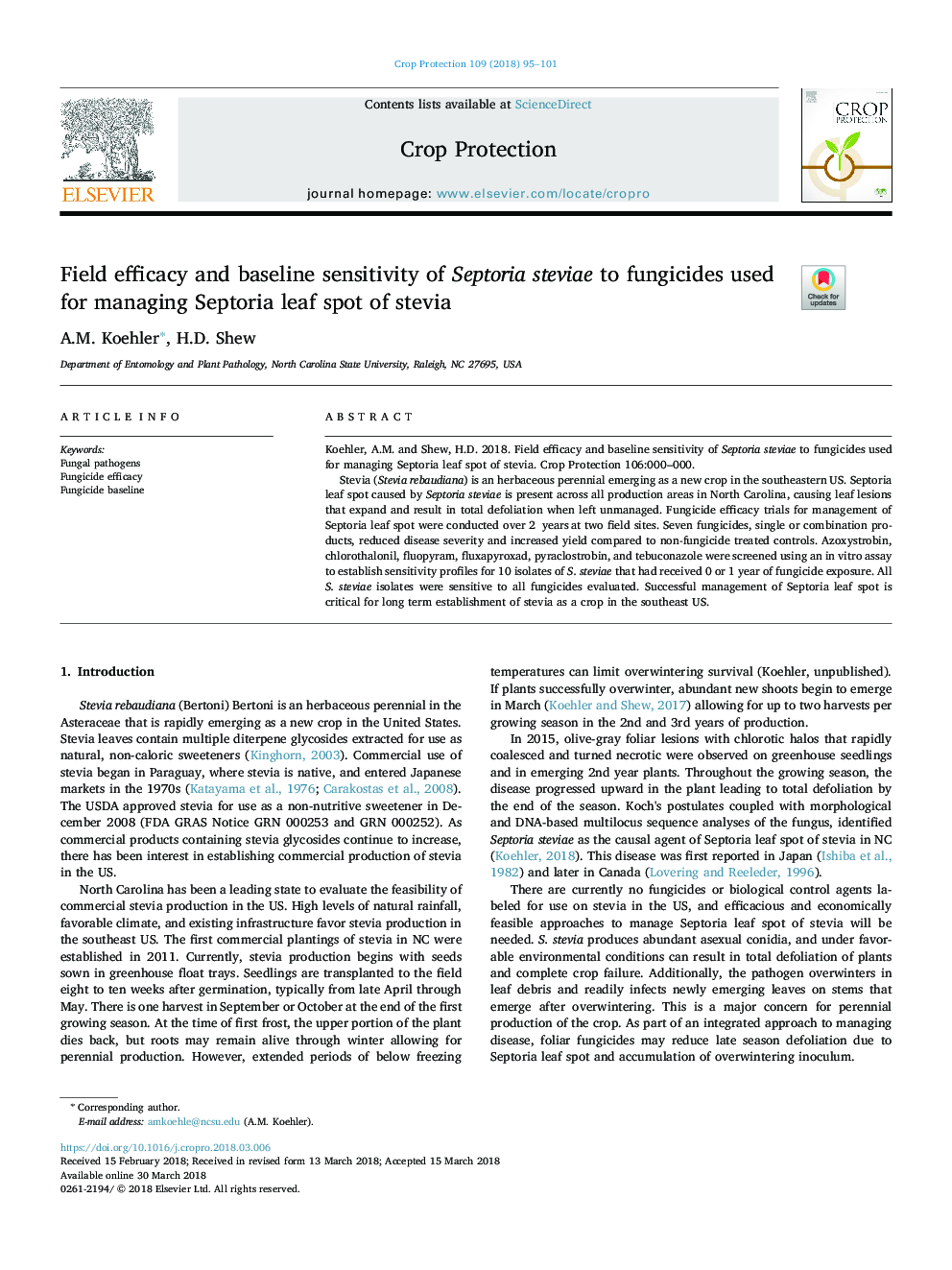| Article ID | Journal | Published Year | Pages | File Type |
|---|---|---|---|---|
| 8878144 | Crop Protection | 2018 | 7 Pages |
Abstract
Stevia (Stevia rebaudiana) is an herbaceous perennial emerging as a new crop in the southeastern US. Septoria leaf spot caused by Septoria steviae is present across all production areas in North Carolina, causing leaf lesions that expand and result in total defoliation when left unmanaged. Fungicide efficacy trials for management of Septoria leaf spot were conducted over 2 â¯yearsâ¯at two field sites. Seven fungicides, single or combination products, reduced disease severity and increased yield compared to non-fungicide treated controls. Azoxystrobin, chlorothalonil, fluopyram, fluxapyroxad, pyraclostrobin, and tebuconazole were screened using an in vitro assay to establish sensitivity profiles for 10 isolates of S. steviae that had received 0 or 1 year of fungicide exposure. All S. steviae isolates were sensitive to all fungicides evaluated. Successful management of Septoria leaf spot is critical for long term establishment of stevia as a crop in the southeast US.
Keywords
Related Topics
Life Sciences
Agricultural and Biological Sciences
Agronomy and Crop Science
Authors
A.M. Koehler, H.D. Shew,
